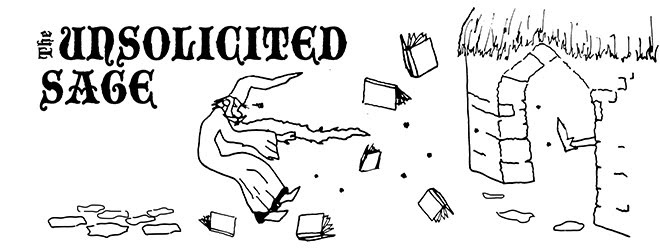But that is next week. This week, I have to make a confession. I'm afraid I went nearly twenty seven years without ever watching Conan the Barbarian. Fortunately, this week, I rectified that gap in my education. But as I was watching the movie, I recognized a trope of high fantasy adventure literature and cinema that generally doesn't translate well into your average tabletop game: the item of significance. Many rule sets have been laid out by many different games on how to create "heirloom items" or how to enhance an existing item so that your player doesn't have to sell off the family sword when he gets his first magic weapon. So I don't plan to rehash something so relatively old hat. Instead, this led me to consider old games that I had played. The feeling of wonder when we found a magical weapon. The suspense as the wizard crushed that 100gp pearl and cast "Identify" on the sword, and the exultation as the DM read the description of the potent magical properties of the weapon. That is something I definitely miss. Nowadays, it seems like the magic is expected, expedient, and often very un-exciting.
My Monday night game had a noteworthy discovery of a magic item which relates to this idea. Our fighter uses two-handed axes, so when we found ourselves facing off against the King of the Xane-kin (Goodman Games monster, not even sure I'm spelling it right) wielding an over-sized two-handed ax of obvious magical power, the whole party was agog with anticipation! What would it be? Could Marcus wield such an immense weapon? Would Cain the Cunning be forced to use his powers to transfer the enchantment to a more reasonable sized weapon? My DM, always the master of improvisation (I'm assuming this wasn't completely scripted, perhaps it was.) saw the excitement that this weapon generated and jumped on it. He described the ax falling to the ground with as much attention to detail and color as one usually reserves for the demise of the campaign's BBEG. The whole group was spell-bound as Marcus tried to lift it. And found that he could! This sort of flavor makes magic items memorable. It also helps keep all players engaged in what is going on a the table. That makes it something worth trying.
So, how should we go about making magic monumental? Here are a few suggestions for players and DMs:
- As DM, solicit a wishlist of items from your players. This is pretty standard fare, but ask for more than you might usually. Ask the player to "describe" the delver's leather armor they want. Is it crafted from the hides of sentient lizards? Does it appear to be made from the skins of giant spiders? These flavor details, produced by the character's player, increase buy-in from the player, making them less likely to thoughtlessly shuck the item when it's enhancement bonus is no longer on par, and also give you material to use to weave the item into the game at a theatrically appropriate moment, increasing everyone's enjoyment of the game.
- As a player, take some time to consider how your character feels about the various items s/he has discovered, and those which s/he hopes to discover. What characteristics make these weapons distinct? Does your character want to be known as the dagger master who leaps from the shadows, face indistinct, but serpentine blades dripping venom and cutting blinding arcs through the darkness? Or does your character wish to use a morningstar with the skull of a barbed demon as the head? Each of these ideas helps the game, and can help you and your friends enjoy it all the more. So think them up, and share them!
- Finally, as the DM, never distribute magic items as an after-thought. It is better to have the loot for the fight ready and be fumbling through three monster manuals to keep up with the stats of the monsters, than to pull off an epic battle that your players were unsure they would survive only to kill the elation by announcing "you find a... helm of leadership on one of the monsters."
The moral of the story is that magic should be monumental. And to make it momentous, you have to give it its moment. Both players and DMs need to do their part. With a little extra attention, and some collaboration on the parts of players and DMs, no loot will ever be dull accounting ever again. Until next week, good gaming!

 spend the entire night rolling 8 or lower other than one 15 and a 13...) but rather the stark juxtaposition of my crap-tacular rolling alongside the multiple crits of our fighter and rogue. Now, D&D is a cooperative game, so I'm certainly not complaining that my team was doing well. In fact, we would likely have ended up ground into paste if they weren't doing better than average. But it got me thinking about 4e, and the frequency of "Those Days."
spend the entire night rolling 8 or lower other than one 15 and a 13...) but rather the stark juxtaposition of my crap-tacular rolling alongside the multiple crits of our fighter and rogue. Now, D&D is a cooperative game, so I'm certainly not complaining that my team was doing well. In fact, we would likely have ended up ground into paste if they weren't doing better than average. But it got me thinking about 4e, and the frequency of "Those Days."